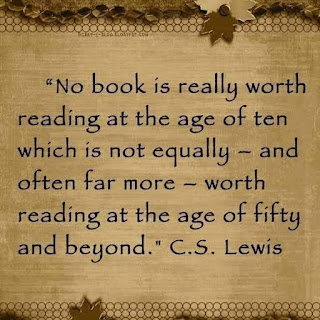This is so true, though stretching a point, I was twelve when I first read The Black Arrow by Robert Louis Stevenson. It totally captured me and decades later, though much of the plot was forgotten, the flavour of the book remained strong, along with certain indelible images. The outlaws' semi-underground den created from the roots of a huge fallen oak was the template for every underground den I made as a boy.
How to describe it? Robert Louis Stevenson referred to it as ‘tushery’ especially in relation to his use of archaic English dialogue, and it puzzles me now how a twelve-year old boy dealt with it. Much the same as a man several decades older, I suppose. The story carries you through, allows you to slip below the surface of the language and enter a deeply coloured world.
But back to Stevenson and his affectionate self-mockery of the book. ‘Tushery, by the mass! Ay, friend, a whole tale of tushery. And every tusher tushes me so free, that may I be tushed if the whole thing is worth a tush. The Black Arrow: A Tale of Tunstall Forest is his name: Tush! A poor thing.’ Mind you, to put this self-criticism into perspective, Stevenson was equally disparaging about, what some see as his masterpiece, ‘The Strange Case of Dr. Jekyll and Mr. Hyde.'
Re-reading a book you loved as a child has its dangers. The disappointment of an adult might not just tarnish a memory but destroy something golden. In this case, mercifully, CS Lewis hit the nail on the head. The twelve-year old Keyton was blown away by a fast moving plot and evocative imagery that stayed in the mind. The much older Keyton saw things he hadn’t before: the subtleties of character. The villainous Sir Daniel Brackley has his merits, charisma and courage, a certain fine recklessness; the future Richard III though not deviating from Shakespeare’s ‘villain’ is also bold and decisive, a natural leader of men. Minor characters like Benett Hatch and his wife Goody Hatch, though working for the villainous Sir Daniel are rounded characters, so that you grieve for their fate. And the young Richard Shelton, the hero of the book is reckless and naïve, only later recognising and accepting the guilt of destroying other people’s lives in derring-do.
Women may cavil at the heroine Joanne, for she is very much the Victorian stereotype: feisty but push-come-to-shove, dependent on men in a swoony kind of way.
In short, summing up The Black Arrow, think The Eve of St Agnes, meets The Famous Five with a Pre-Raphaelite gloss. Not something a twelve-year old boy would have thought of but true all the same.
PS Another book I’d like to re-read is ‘The Dark is Rising’ by Susan Cooper, though that doesn’t quite fall into the CS Lewis category, since I was enjoying that in my twenties.











No comments:
Post a Comment